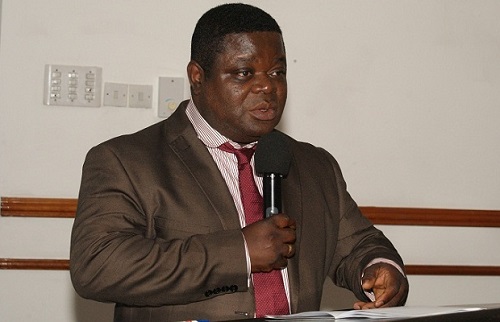Professor Peter Quartey has welcomed government’s proposed unemployment benefit scheme but indicates the programme must be robust and must be a temporary back up for workers.
Finance Minister Ken Ofori-Atta recently let out that he is looking at the option of rolling out this programme to support Ghanaians.
According to him, the move has been influenced by how conditions of some workers have been affected because of the coronavirus pandemic.
“As a responsible society we should have such a program to cushion Ghanaians when needed.”
According to the Director for Institute of Statistical, Social and Economic Research (ISSER), Prof Quartey, because of the impact COVID-19 has had on the public purse, the programme can be public or private. Even though he thinks this initiative is in the right direction, he said in an interview that, this programme should be well structured in a way that will provide temporary relief for workers. He also pointed out some modalities which, when employed by the proposed unemployment scheme may make it better.
“It could be private or if it’s public then one is in active service. You contribute and then that money is invested just like the SSNIT pension scheme. The scheme has to be well structured, where if it is private you contribute and then the conditions are laid out quite clearly.
“If you are above a certain age or below a certain age you don’t qualify. If you haven’t worked for six months you don’t qualify. And you contribute regularly towards a scheme where it is invested and then when you lose your job will you benefit from the scheme. Of course within 12 months you have to seeking for job. It doesn’t have to be a long term source of income. In some cases up to 12 months after which you have to exit the scheme.”
The onset of the Coronavirus has caused many people to lose their jobs as businesses are crumbling due to a decline in economic activities.
The Finance Minister has projected that Ghana’s economy will grow at a reduced rate of 1.5% this year.
Albeit, the Bank of Ghana is more hopeful about growth this year as it has projected a little over 2% growth for the country before the end of 2020.
On the contrary, the International Monetary Fund has warned that the Coronavirus pandemic will turn global economic growth “sharply negative”.
For sub-Saharan Africa, the World Bank has also projected that a recession is looming for the first time in 25 years, because of the slump in economic activities due to the coronavirus pandemic.
Looking at the dire nature of these projections, it is doubtless that job losses will be an integral feature in this slump. The African Development Bank has also indicated that about 49 million Africans may be pushed into extreme poverty due to COVID-19.
This, without doubt will also raise the issue of joblessness in the country’s discourse.
As the 2020 General elections draw nigh and the country seeps gradually into the aforementioned projections, it is natural for unemployment to become one of the top issues during the electioneering campaign.
In the wake of job losses triggered by the coronavirus pandemic, the Minister for Employment and Labour Relations, Ignatius Baffuor –Awuah, last week said that government is taking steps to minimize unemployment by creating some opportunities particularly for the youth.
Speaking at an AGI Joint Regional Webinar for six regions on the theme ‘Minimizing the impact of COVID-19 on job losses; building resistance and strategies, he indicated that, plans are far advanced to engage the youth in Agric, services and manufacturing sectors.
In August Last year, former President John Mahama criticized the incumbent government for not tackling the unemployment issue in the country as it purported to.
“Rising poverty levels is creating anxiety, stress and depression.
“I am ready, very ready! I am ready to work hard to provide jobs for our youth, as well as reduce the high cost of living in the country.”
This sort of rhetoric will definitely continue but how secured will the Ghanaian worker be in these turbulent times. As a result of this insecurity, the government’s proposed benefits to tackle unemployment will be anticipated by workers and expected to be long-lasting.



















